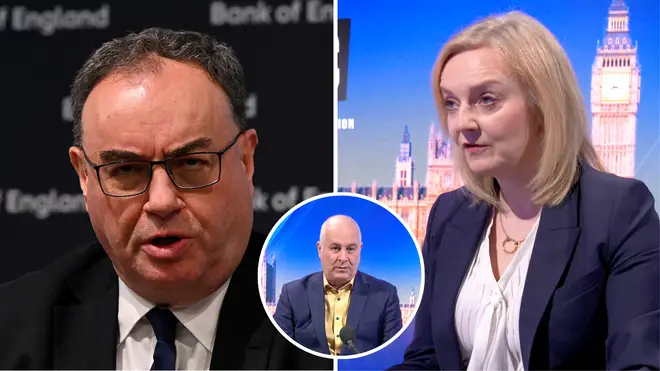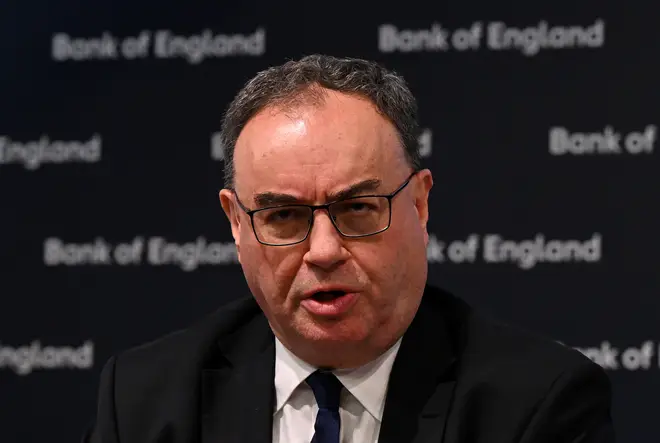
Clive Bull 1am - 4am
15 April 2024, 11:17

Former Prime Minister Liz Truss has told LBC she believes Bank of England governor Andrew Bailey should resign over his reaction to her government's catastrophic 2022 mini-budget.
Asked by LBC’s Iain Dale if she believed she was ‘stitched up’, Ms Truss said the reaction to her mini-budget represented “groupthink rather than a conspiracy”.
“They believe in the current economic model Britain has, they believe in the economic consensus. They essentially believe, in my view, in managing decline,” Ms Truss told LBC.
Asked if she thought Andrew Bailey, the governor of the Bank of England, should retain his position, Ms Truss said: “No, I don’t.”
Ms Truss also called for a “proper investigation into what happened in September 2022 and the actions the Bank took”.
She resigned as Prime Minister after just six weeks in the job after her government's mini-budget crashed the pound and sent household costs soaring.

Liz Truss says Andrew Bailey should resign
“Our country has been held back for too long by low economic growth,” she said as she resigned in October 2022.
“We set out a vision for a low tax, high growth economy that would take advantage of the freedoms of Brexit.”
After calling on Mr Bailey to resign, Ms Truss acknowledged the “difficulty” in a prime minister being able to move a governor of the Bank of England on, blaming Gordon Brown.
“I think big mistakes have been made with monetary policy. I think interest rates were too low for too long. I think quantitative easing has done a lot of damage to our economy,” Ms Truss added.
“I’m not advocating going back to the situation that we saw pre-the independent bank of England, where Chancellors were setting interest rates, but I do think democratically-elected ministers should be responsible for managing fiscal and monetary policy.”

Ms Truss’ government erupted into chaos after the-then Chancellor Kwasi Kwarteng announced a series of radical measures to ‘fix’ the economy.
This included £45bn of unfunded tax cuts.
Ms Truss had promised a "bold plan" to cut taxes and grow the economy and "deliver on the energy crisis", but the mini-budget, unveiled four days after the Queen's funeral, with its plans to abolish the top rate of income tax for the highest earners sent the markets into turmoil.

Matt Frei's views on Liz Truss' premiership
Ms Truss insisted she stood by the package but in the end sacked Mr Kwarteng, whose successor, Jeremy Hunt, reversed most of the measures.
Ms Truss's stint as PM was the shortest in British history. The previous record-holder was Tory statesman George Canning, who spent 118 days as prime minister in 1827 before dying in office from ill-health.